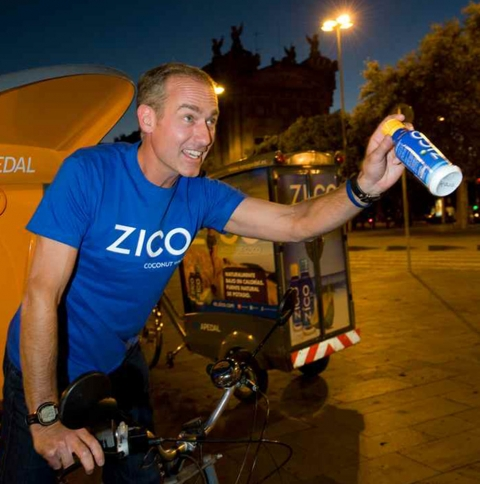Interview with VP Julianne Hummelberg: How Plant-based startups can achieve healthy gross margins from an early stage
July 20, 2021
Interview courtesy of Nutrition Investor (nutritioninvestor.com)
Julianne Hummelberg, vice-president for the investment team at growth equity firm PowerPlant Partners, has a keen eye for spotting future success stories in plant-based food.
Having previously invested in Beyond Meat, the firm is particularly encouraged by how strong the exit landscape is in the plant-based food world, and it strives to determine the right exit plans for its portfolio companies as they really start to make their mark with consumers.
Speaking with NutritionInvestor, Hummelberg offers up some insight on how foodtech SMEs can achieve healthy gross margins north of 30%.
What’s your investment mandate at PowerPlant Partners?
Since we were founded back in 2015, we’ve been investing behind a single thesis that our $8 trillion food system is broken and deeply out of line with current and future needs. It’s unhealthy. It’s inefficient, unsustainable, inhumane and really unprepared for the 60% increase in global food demand that we’ll see by 2050 with two billion more people entering our planet.
We firmly believe that one of the strongest solutions that’s implementable by consumers right now is a plant-based diet that promotes health and wellness in humans and animals, as well as for our planet more broadly. It has been proven to reduce greenhouse gas emissions, reduce global mortality and have significant economic benefits in terms of reduced healthcare costs globally.
all four of our partners were previously operators who created, founded and scaled their own plant-based food or beverage brands that were sold either to private equity or strategics, including Coke or Pepsi,. After these exits, they leveraged their success through investing and formed PowerPlant Partners
Fund one included some phenomenal names like Beyond Meat, Apeel Sciences and Thrive Market and I was brought on as we were raising Fund Two as the first non-partner hire, which we’ve recently fully deployed
My background has always been in investing and asset management, but not particularly in this sector. I went to Columbia Business School to make that pivot and find an investment firm that really resonated with my core values around health, wellness and sustainability. I think we’re really well positioned to invest across impact-oriented consumer brands that are leading with the power of plants.
We’re also uniquely focused on the growth equity space. So, typically companies that have generated at least $10 million in revenue and have proven product market fit in a specific channel or geography.
We’re able then to come in with capital, typically ranging from $8 million to $15 million in terms of initial cheque size, to help the companies replicate their success in other channels and other geographies – and scale sustainably to drive towards profitability and grow the impact that they’re making, ideally to position them for a really strong exit.
What are the key signs to spotting a successful business?
[The sector] really is competitive., brands are entering at a more rapid pace than ever before. So, we need to sift through a lot. On average, we get between 150 and 170 deals per quarter, mostly through inbound with some through outbound as well.
What we typically look for is a mission-driven founder who really has the ability to scale a company. I think we’re uniquely positioned to diligence that because all of our general partners have been in that position before. We can understand quickly if they have what it takes or not.
We’ll start with the team first and we’ll then dive into the product and how that plays into the market opportunity. Is it differentiated? Does it taste good? How is it priced? Is there tech or IP? Are consumers buying it? This can be validated by either sale velocity metrics in retail or D2C metrics online.
After diligencing the team, product and market opportunity, we’ll dive into the market dynamics like how the brand is differentiated against othersin the space and what is the quality of their revenue. Is it concentrated within a core set of SKUs and distribution channels? Or dispersed across many? We’d prefer concentration and keen prioritization at the growth equity stage.
We typically invest in companies that have already generated $10 million in revenue and we like to see revenue doubling at least year-over-year and strong gross margins with a path to north of 30%. But most importantly, need to see a sustainable business model that we can see scaling to other channels and other geographies. And impact needs to be integrated into every aspect of the business and really a part of their DNA because we think it is authentic impact brands that are going to be the strongest investments within food and beverage in the future. So, we do a robust impact due diligence as well.
How can you help your portfolio companies look to achieve healthy gross margins in a sector where profitability is still pretty low when considering the big public companies like Oatly and Impossible Foods?
Alternative protein companies typically have low margins at the beginning and really need substantial scale to achieve the mid-30% gross margins. These companies need to replicate the taste and mouthfeel of animal products with plant-based ingredients and that takes a lot of new ingredients and production technologies.
Industrialised farmed-animal ingredients are so manufactured and extremely cheap because of the support that they’ve been given from subsidies etc.
What we encourage founders to do is find that balance and find positive gross margins at minimal scale. It’s challenging to do. And if companies have that at an early stage, it’s certainly a standout for us and something that we’d be excited to back.
We like to see that our capital at the Series B or C stage can get these companies to profitability. That way, we have maximum optionality for the next financing round. We tend to see that sustainable profitability can be achieved at 35%-plus profit margins and 30–40% is a range alternative protein companies should strive for.
How do you assist companies in determining what the best exit strategy for them is?
We always start with the end in mind, it really guides the value-add process that we implement post-investment. Typically, we’ll identify risks that need to be mitigated during due diligence, come up with the value-add that mitigates those, implement that value-add strategy to mitigate those risks immediately post-investment – and those risks are typically those that would prevent the successful exit outcome from happening.
That being said, each mission-driven founder has different definitions of success and we are uniquely equipped to help them achieve whatever that definition of success may be. Sometimes it’s an acquisition, sometimes it’s selling to a financial sponsor or private equity group, more recently it is sometimes a SPAC, although I’m unsure how long that trend will last, and other times its IPO and public markets.
We really have diverse exposure to help companies prepare for that, but the preparation varies depending on which path they want to go down. We’ll always do a market map of the strategic landscape so that companies understand what the potential strategic acquirers are and what they typically look for, whether it be the type of brand or type of product that is incremental to their portfolio, or something more quantitative like a financial metric
If you’re really aiming for a unicorn valuation the pool of potential strategic investors decreases significantly because there are not many that are willing to pay that type of price. And then your probability weighs a bit more towards exiting in the public markets.
You’ll still have a focus on margins and profitability, probably less so than you would under a strategic acquirer, but it is a really strenuous and intense process. We would start encouraging conversations with investment banks to understand that a bit more and position accordingly.
What sort of investments you’re looking at next?
Alternative proteins, whether it be plant-based fermentation or cell-based food is just such an enormous opportunity. The market share penetration of traditional animal products across every protein vertical is so low relative to what plant-based milk has been able to achieve with 15% dairy market penetration and north of 60% household penetration in the US.
I firmly believe in the thesis we have of ‘beyond Beyond’, which is what’s next beyond Beyond Meat and Impossible Foods. I think it is cleaner ingredient profiles, alternative and adjacent categories like alternative proteins and the use of technology through fermentation and developing cell-based foods.
McKinsey just projected that cultivated meat could grow to a $25 billion industry by 2030. It’s effectively nascent today and in the hundreds of millions of dollars given the bottleneck of technology production, pricing and regulatory approval, but we’re really encouraged by that trend.
As Powerplant moves into beauty and wellness, how will your investment approach change and what can you take from your experience with food businesses?
Our core focus has been, and will continue to be, plant-based food, foodservice and foodtech. However, personal care and beauty are very exciting categories from a growth, investment and impact perspective. Plant-based is a lifestyle that we’ve bet on for over a decade. This trend is permeating consumer sectors beyond just food as consumers have started to demand plant-based across all products they consume.
These companies are not only catering to the same consumers but they also use similar ingredients, go-to-market strategies, distribution channels and branding strategies to plant-based food.
Additionally, these businesses typically have high margins and strategics pay big multiples for them. We see a lot of opportunity here and are actively reviewing investments in this space.
Our investment approach and value-add strategy are similar to food and beverage given these overlaps and we will remain focused on the growth equity stage leading Series A, B or C rounds in these sectors.
Date published: 8 July 2021, NutritionInvestor.com



